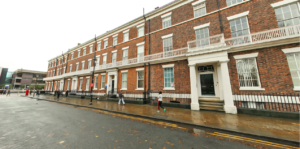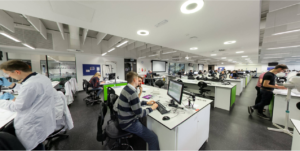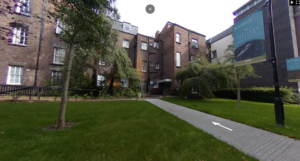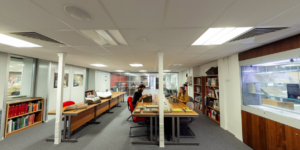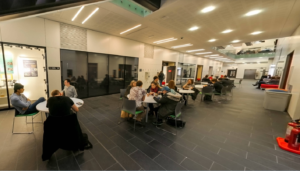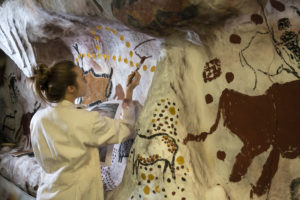How you'll learn
The majority of teaching is delivered in seminar format with fellow students, combined with one to one session support from your dissertation supervisor.
Within the core module ‘Research Event’ (CLAH854) you will work together with fellow students to articulate a research question and pursue it through organizing, participating in and reflecting on a research event, or colloquium. Independent study is carried out alongside this via producing a written portfolio. This work enables you to strengthen your research skills and topic-specific knowledge, whilst building key employability skills associated with team work and developing practice-based understanding of event organization.
Optional modules in Classical and Near Eastern Archaeology offer sessions in handling and evaluating archaeological remains.
In years when they are running, full-time students may apply to attend a residential postgraduate course at the British Schools of Athens (CLAH898) or Rome (CLAH899). Places on the courses are awarded by the schools on academic merit. Successful applicants receive practical skills training and develop knowledge and understanding of an aspect of ancient Greece or Rome, and benefit from the expertise, resources and facilities available at an international institute for advanced research.
Optional ancient Greek or Latin language modules involve frequent contact sessions (two or three per week). The different language modules available cater for different levels of prior knowledge, therefore those at complete beginner to advanced levels will be supported in language learning.
You are continually supported in your dissertation work by a dissertation supervisor, who will discuss progress and offer feedback on draft writing.
How you're assessed
Assessments are fundamentally research-based; they require students to identify and marshal resources, evaluate and analyse evidence from critically informed perspectives, and to develop robust arguments. This is achieved through a varied portfolio of assessment activities depending on the module.
The optional modules: ‘Truth and Lies’ (CLAH851), ‘Spaces and Places’ (CLAH853), ‘The Body’ (CLAH852) and ‘Praise and Blame’ (CLAH858) require you to complete a 5,000 word essay on a research project. This assessment assists in building towards the longer 15-20,000 word required Dissertation. Optional modules in Classical and Near Eastern Archaeology involve similar essay assessments, plus other assessment tasks such archaeological reports and catalogues.
Optional ancient languages modules involve unseen exams (with a dictionary) to assess linguistic competence and comprehension. From intermediate language level onwards, these are balanced with critical exercises and commentaries to assess interpretation and translation, which include a research component. The language modules are the only modules on the course to assess via exam.
Required modules in Research Skills and Methodologies introduce a range of other activities through which research can be presented and reflected upon in other formats, including blogs, journals, posters, and oral presentations. These varied assessments engage you with the techniques of research appropriate to your subject specialisms whilst familiarising you with different communication strategies and technologies. Through the diverse assessment approach of the programme you are therefore provided with preparation for further research and enhanced employability.
Liverpool Hallmarks
We have a distinctive approach to education, the Liverpool Curriculum Framework, which focuses on research-connected teaching, active learning, and authentic assessment to ensure our students graduate as digitally fluent and confident global citizens.
The Liverpool Curriculum framework sets out our distinctive approach to education. Our teaching staff support our students to develop academic knowledge, skills, and understanding alongside our graduate attributes:
- Digital fluency
- Confidence
- Global citizenship
Our curriculum is characterised by the three Liverpool Hallmarks:
- Research-connected teaching
- Active learning
- Authentic assessment
All this is underpinned by our core value of inclusivity and commitment to providing a curriculum that is accessible to all students.
